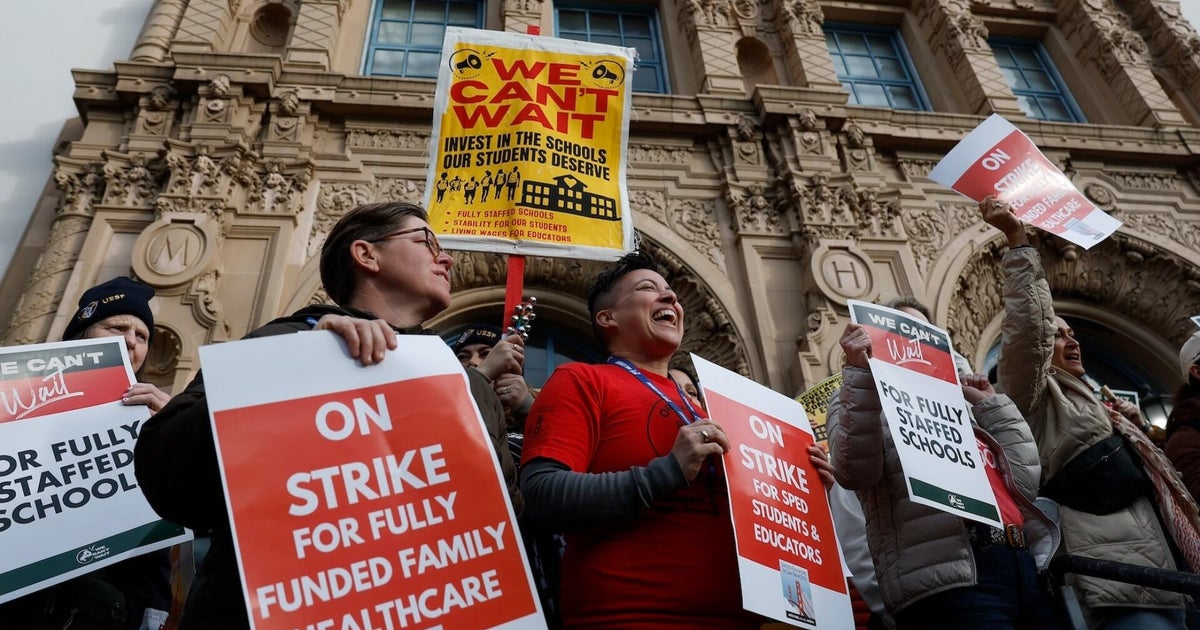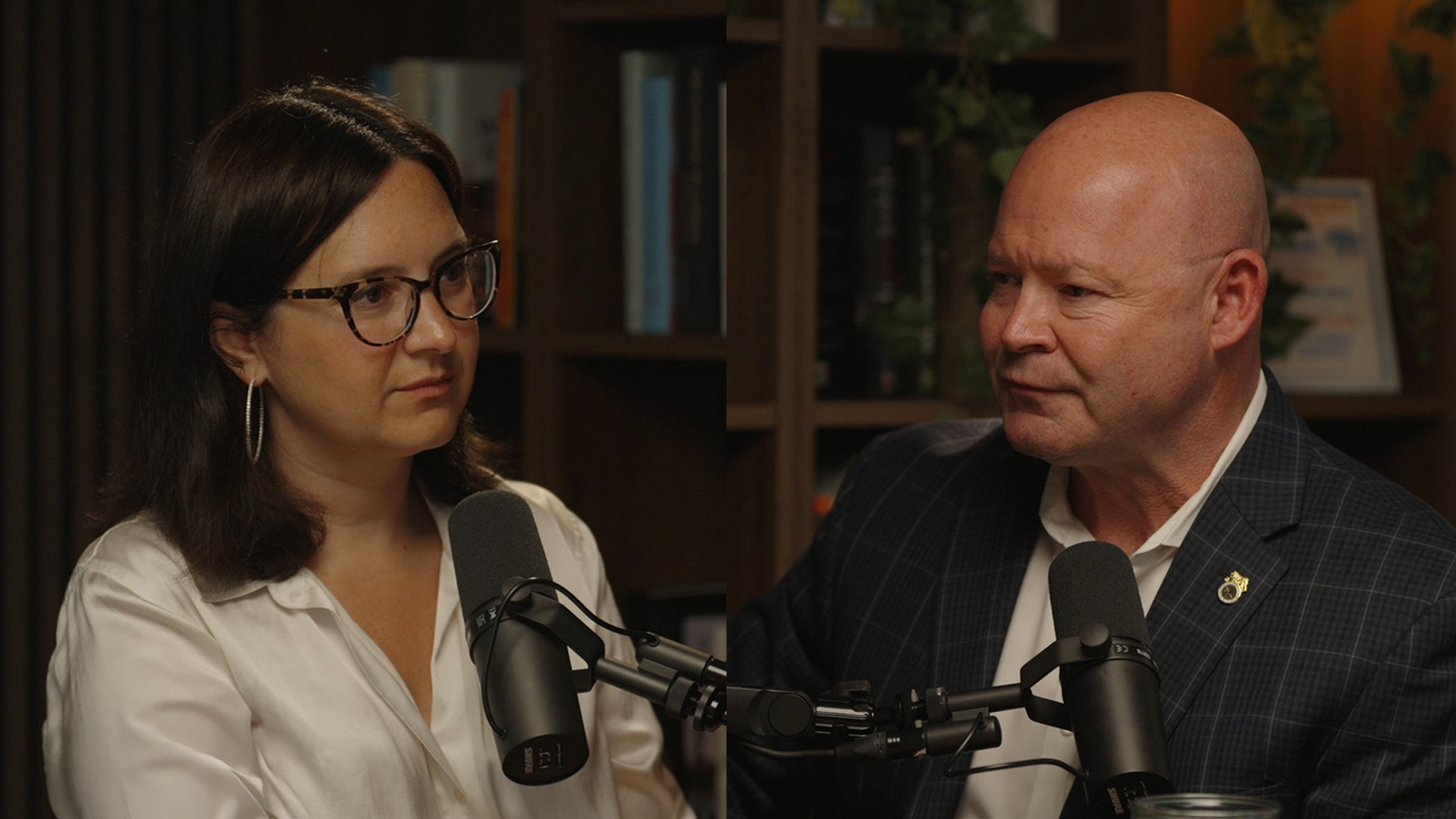Why is the UAW on strike? These are their contract demands as they negotiate with the Big Three
As the United Auto Workers enters day four of its strike against Detroit's Big Three, the stakes are getting higher for automakers Ford, General Motors and Stellantis. UAW President Shawn Fain has threatened to target more factories for work stoppages if "serious progress" toward an agreement isn't reached by Friday at noon.
What do striking autoworkers want? Here is a list of contract demands the union is making at the negotiating table.
Pay increases and cost of living adjustments
The UAW is asking automakers for a 36% pay increase across a four-year contract. For now, however, the sides remain far apart on a wage hike.
Stellantis — which owns Chrysler, Dodge, Jeep and Ram, along with major foreign brands including Citroën, Peugeot and Maserati) — on Saturday offered a 21% wage increase over four years, with an immediate 10% bump when a new contract is signed. The union summarily rejected the offer.
"It's definitely a no-go," Fain told CBS News' "Face the Nation" on Sunday of Stellantis' proposal. "We've made that very clear to the companies."
The UAW also wants the Big Three to reinstate annual cost of living adjustments, arguing that inflation is eating away worker paychecks. For decades, the Detroit automakers offered a COLA, but stopped after GM and Chryslers went bankrupt following the 2008 financial crisis.
Adjusting for inflation, autoworkers have seen their average wages fall 19.3% since 2008, according to Adam Hersh, senior economist at the left-leaning Economic Policy Institute. That's because autoworker "concessions made following the 2008 auto industry crisis were never reinstated," Hersh said in a recent blog post, "including a suspension of cost-of-living adjustments."
- How much does an average UAW autoworker make—and how much do Big Three CEOs get paid?
- UAW's Shawn Fain says he's fighting against "poverty wages" and "greedy CEOs." Here's what to know.
End of wage tiers
The UAW wants the Big Three to scrap its two-tiered wage structure. Under that system, top-tier workers — meaning anyone who joined the company in 2007 or earlier — earn an average of roughly $33 an hour. But those hired after 2007 are classified as lower tier and earn far less — up to about $17 an hour.
Lower-tier employees also aren't eligible for defined benefit pensions, and their health benefits are less generous. The UAW says that paying employees half as much for doing the same work amounts is unfair.
Defined benefit pension plans for all
Currently, UAW workers who were hired after 2007 don't receive defined benefit pensions. For years, the union gave up general pay raises and lost cost-of-living wage increases to help the companies control costs.
"The majority of our members do not get a pension nowadays. It's crazy," Fain complained while speaking to Ford workers last month at a plant in Louisville, Kentucky.
Art Wheaton, director of labor studies at Cornell University's School of Industrial and Labor Relations in Buffalo, believes the union will ultimately lose its battle for the return of pensions.
"I think the chances of them winning even most of what they're looking for is between slim and none," said Wheaton. For example, he said, "I wouldn't hold my breath for [the return of pension plans]. Almost no one in any industry is adding those today."
"But you never ask for the minimum, you ask for more than what you want to reach a deal," he said.
Four-day workweek and more time off
Along with substantial pay raises, more paid time off and pension benefits, one of the changes UAW leaders have been bargaining for is a four-day workweek, working 32 hours for 40 hours of pay, and more time off "to spend with family," according to the UAW site.
"Our members are working 60, 70, even 80 hours a week just to make ends meet. That's not living. It's barely surviving and it needs to stop," Fain said last month on Facebook Live, explaining the demands of the union.
Advocating for shorter workweeks is not a new concept for auto workers. Congress amended federal labor laws in 1940, limiting the workweek to 40 hours, but nearly 15 years earlier, Ford Motors became one of the first companies to implement a 40-hour week.
Right to strike, family protection
The union is also asking for the right to strike over plant closings.
"The Big Three have closed 65 plants over the last 20 years," according to the UAW's website. "That's devastated our hometowns. We must have the right to defend our communities."
With that in mind, the union also wants to implement a "working family protection program" that pays UAW to do community service work if the companies shut down a facility.
Perhaps most important to the union is that it be allowed to represent workers at 10 electric vehicle battery factories, most of which are being built by joint ventures between automakers and South Korean battery makers. The union wants those plants to receive top UAW wages. In part that's because workers who now make components for internal combustion engines will need a place to work as the industry transitions to EVs.
Retiree health care
In addition to a return of traditional pension payment plans and significantly higher pay for retired workers, the union is seeking health care for all retired UAW members. Workers hired before 2007 still have those benefits. But those hired since – a majority of hourly workers – do not.
The UAW gave up the pension plans and retiree health care for new hires and COLA for all members when GM and Chrysler were hurtling toward bankruptcy in 2009. But it will be difficult for the union to convince management to reinstate those benefits, said Patrick Anderson, CEO of Anderson Economic Group, a Michigan research firm.
Limited use of temporary workers
The union is also demanding that the automakers limit their use temporary workers, who under the tiered-wage system receive the least pay and no benefits.
"We are going to end the abuse of temps. Our fight at the Big Three is a fight for every worker," the UAW states on its website.
"Audacious" demands
Fain himself has acknowledged that the union's demands are "audacious." But he contends that the automakers can afford to raise workers' pay significantly.
Over the past decade, the Detroit Three have emerged as robust profit-makers. They've collectively posted net income of $164 billion, $20 billion of it this year. The CEOs of all three major automakers earn multiple millions in annual compensation.
"Companies have made some significant offers, but I believe it should go further — to ensure record corporate profits mean record contracts," President Biden said Friday as he addressed the decision by UAW's decision to strike,



